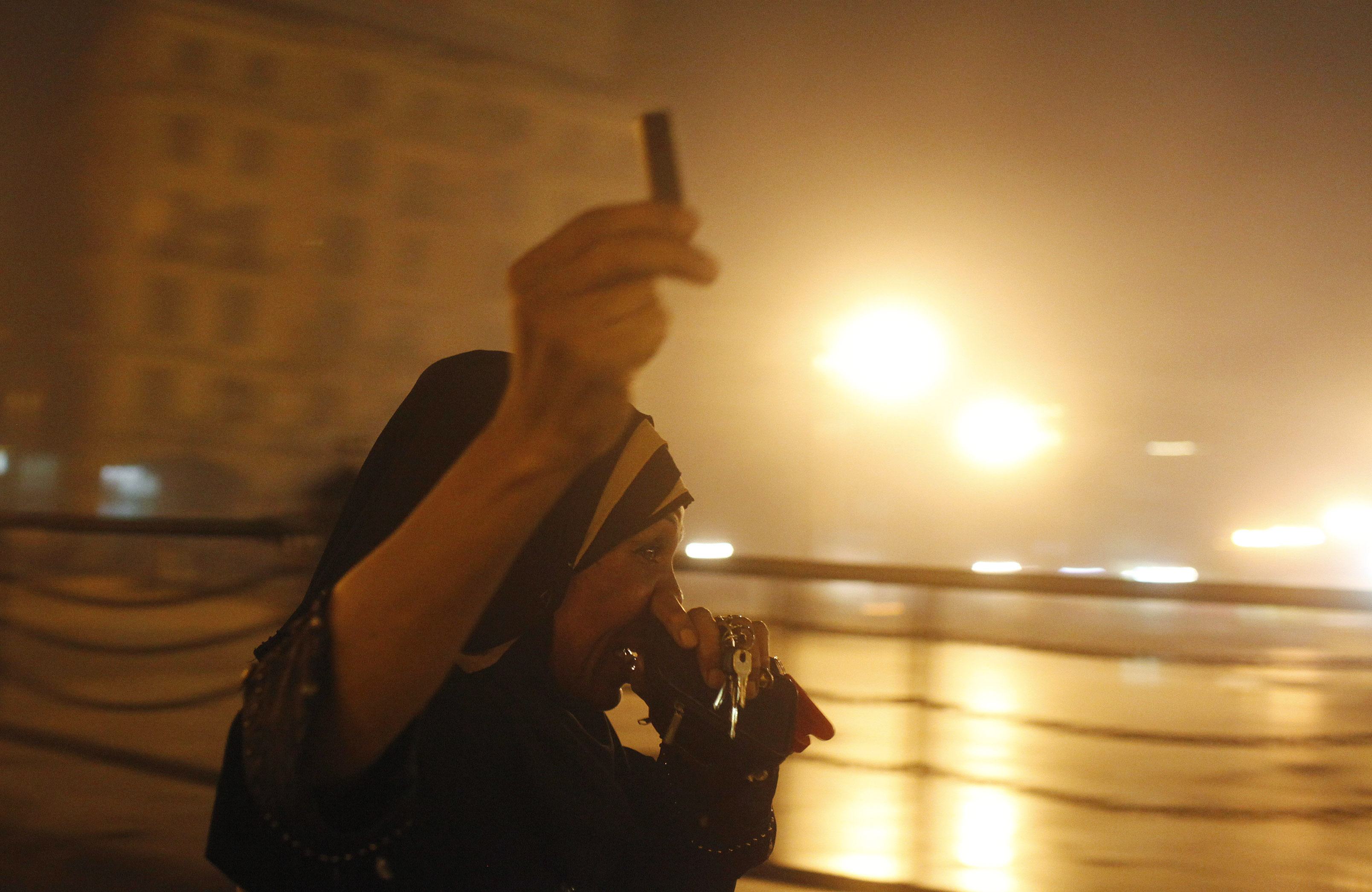Egypt minister warns of terrorism wave after assassination attempt

By Yasmine Saleh
CAIRO, Sept 5 (Reuters) - The Egyptian interior minister survived an assassination attempt unscathed on Thursday when a car bomb blew up his convoy and he said afterwards that a wave of terrorism by opponents of the military-installed government was just beginning.
The minister, Mohamed Ibrahim, had been involved in overseeing a violent crackdown on supporters of Mohamed Mursi, the elected Islamist president who was overthrown two months ago by the army following mass protests against his rule.
No organisation immediately claimed responsibility for the attack, the biggest yet on the new government.
Mursi's Muslim Brotherhood - accused by the government of terrorism and inciting violence - condemned it. But it showed the risk that Egypt's political crisis could spawn a wave of Islamist attacks like those in the 1980s and 1990s.
"What happened today is not the end but the beginning," Ibrahim said.
The head of Cairo security, Osama Al-Saghir, said the ambush began seconds after Ibrahim left his house in the capital's Nasr City on his way to work.
A car driving ahead of the convoy exploded and the minister's armoured car also came under heavy gunfire, Saghir told the newspaper Al-Ahram.
"The driver of the car bomb met his end, and the investigators found the remains of another body that are being examined," he said.
Senior Brotherhood leader Amr Darrag issued a statement on behalf of the Brotherhood-led Anti-Coup Alliance saying it strongly condemned the attack.
Mursi, Egypt's first democratically-elected president, was overthrown on July 3. The new authorities have imposed a state of emergency and nightly curfews, and Mursi and most of the Brotherhood's leaders have been arrested.
More than 900 of its supporters have been killed, many of them when security forces attacked pro-Mursi protest camps in Cairo on Aug. 14, and at least 2,000 rounded up. About 100 members of the security forces have also been killed in the political violence.
The Muslim Brotherhood says it is committed to peaceful resistance and has twice in the last week brought thousands onto the streets to denounce what it calls a coup against democracy.
PLANS TO KILL
Ibrahim said earlier this week he had been informed of plans to kill him and that "foreign elements" were involved. Armed forces chief General Abdel Fattah al-Sisi had supplied him with an armoured car, he said.
There were conflicting reports about the nature of Thursday's attack.
Security sources contacted by Reuters that three bombs planted inside a motorcycle had detonated as Ibrahim's convoy passed by. State TV reported a bomb had been thrown from a roof.
Ibrahim said the "despicable attempt" on his life had destroyed four of his bodyguards' vehicles. He said one police officer was in critical condition and that another officer and a small child had lost legs.
"Many of my guards were injured," he said, adding that investigations had shown the blast had been detonated remotely.
State media said 22 people had been wounded in all.
Security forces quickly sealed off the area, where blood and pieces of flesh were scattered on the ground amid the charred wreckage of several cars.
"I was standing by a kiosk when police officers came and told me to make way as the minister's convoy passed. I moved a few inches, then I heard a huge explosion," said local resident Mohamed Raafat.
"I looked behind and I saw remains of dead bodies and was told that a car that was parking had exploded near the convoy."
Many Egyptians have expressed support for the crackdown.
But the Brotherhood, which came to power in elections following the overthrow of general-turned-president Hosni Mubarak in Febraury 2011, says the allegations of terrorism are a pretext for neutralising it and returning Egypt to the repression of the Mubarak era.
"This is sad," said bystander Ahmed Mahmoud, 32. "Innocent people have died today but the government needs to know that terrorism will bring more terrorism and violence will bring more violence.
"So when they use violence to disperse protesters, despite our opinion of those Brotherhood protesters, what did they expect to get in return? Peace and prosperity? They will only get more violence."
An Islamist insurgency in the 1990s destabilised Egypt and badly damaged the tourism industry, one of its main economic lifelines.
Islamist militants, who had taken advantage of a security vacuum left by Mubarak's fall to establish themselves in the relatively lawless North Sinai, have stepped up attacks on security forces in the area since Mursi was toppled.
Gamaa Islamiya, a group involved in the 1990s' attacks that has since renounced violence, denied any link into Thursday's attack.
"These are new, small, unknown networks, independent of any organisation," said Kamal Habib, an expert on Islamist groups. "This was expected. We said it a million times."
But political analyst Mustapha Al-Sayyid disagreed.
"There is a strong possibility the Brotherhood or its sympathisers or supporters are behind the attack. They have been engaged in a number of violent attacks targeting police stations and officers since Mursi's ouster, which implies that their tactics don't only rely on protests."
Nasr City was the scene of Egypt's most famous assassination, when Anwar Sadat, Mubarak's predecessor as president, was killed by Islamists in 1981. (Additional reporting by Tom Perry, Shaimaa Fayed and Ali Abdellati; Writing by Kevin Liffey)









facebook comments